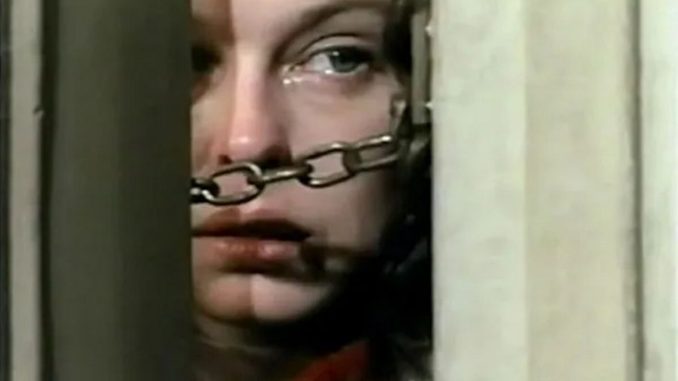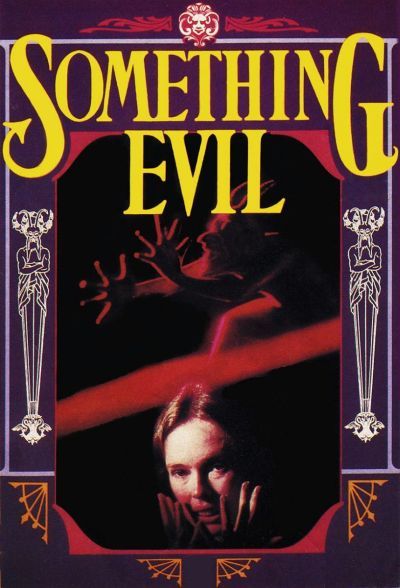
Rating: C
Dir: Steven Spielberg
Star: Sandy Dennis, Darren McGavin, Ralph Bellamy, Johnny Whitaker
I dunno who this “Spielberg” guy is, but based on this I doubt he’ll ever amount to much. His “proper” feature debut, with the TV movie Duel, has acquired a cult status since as a taut thriller, significantly better than most television films. But less well-known are the two other movies Spielberg made for TV, between Duel and his cinematic debut in 1974 with Sugarland Express. This was the first, and is the more interesting – at least, in the light of subsequent films. For the basic story, of a family moving into a house with a dubious history, and experiencing terrifying supernatural events there, is not all that far off the one used in Poltergeist. Which Spielberg famously did not direct, of course…
The family in this case are the Wordens, with father Paul (McGavin) an advertising executive in New York, who buys a farmhouse in rural Pennsylvania, at the behest of his wife, Marjorie (Dennis). She thinks it’ll be the perfect place to raise their kids, Stevie (Whitaker) and Laurie. Initially it is, though the audience know better, having already seen the fate of the previous resident. From here, things follow the pattern you would expect, with Marjorie the “sensitive” one – I mean, she’s arts and crafts, so is clearly out there – and Paul dismissing any and all evidence as superstitious nonsense. But Marjorie finds an ally in local resident Harry Lincoln (Bellamy, perhaps cast for his role as the doctor in Rosemary’s Baby), who is a wealth of knowledge. Maybe suspiciously so.
 Or maybe it’s just me. I note this screened in January 1972. That’s almost a full two years before The Exorcist blew the doors off cinemas, and ushered in the seventies wave of religious horror. This is considerably more genteel, partly an inevitable result of the medium: what you could show on American television in 1972 was… limited. I mean, it was only the previous year that TV audiences were finally allowed to hear (but not see) a toilet flushing, on All in the Family. Society, somehow, survived this outrage, but anyone expecting more than spooky noises off, and inexplicable glowing lights, will be sorely disappointed. If Satan is genuinely in the house, as Marjorie feels, he’s very much half-assing it.
Or maybe it’s just me. I note this screened in January 1972. That’s almost a full two years before The Exorcist blew the doors off cinemas, and ushered in the seventies wave of religious horror. This is considerably more genteel, partly an inevitable result of the medium: what you could show on American television in 1972 was… limited. I mean, it was only the previous year that TV audiences were finally allowed to hear (but not see) a toilet flushing, on All in the Family. Society, somehow, survived this outrage, but anyone expecting more than spooky noises off, and inexplicable glowing lights, will be sorely disappointed. If Satan is genuinely in the house, as Marjorie feels, he’s very much half-assing it.
While I wouldn’t say there were many obvious Spielbergian touches, there are scenes where you might recognize some stylistic flourishes. For instance, the camera prowling around the guests at a party (one of whom is the director himself), like an enthusiastic waiter offering canapés. But the director has never been one particularly noted for a visual approach: it’s more about the characters here, and those are likely the film’s strongest element. The script is not. It’s written by Robert Clouse, who’d go on to direct Enter the Dragon the following year, and I can’t help feeling, adding Bruce Lee would have helped enliven the proceedings here considerably. Or maybe a killer shark. That’d work too.
